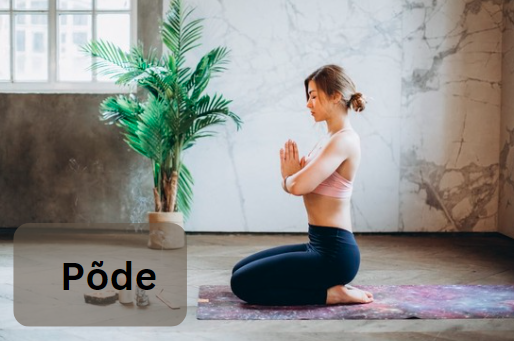In today’s fast-paced world, finding balance and harmony within ourselves and our surroundings has never been more critical. This quest for inner peace and holistic well-being has led many to explore ancient philosophies that emphasize nurturing both body and mind.
One such concept is “Põde,” a term rooted in the timeless wisdom of Ayurveda and Traditional Chinese Medicine (TCM). This article delves deep into the philosophy of Põde, offering insights, analyses, and practical applications for achieving a balanced and harmonious life.
What is Põde?
Etymology and Pronunciation
“Põde,” pronounced “poh-deh,” is derived from ancient Eastern philosophies. In Sanskrit, the term can be linked to concepts in Ayurveda, where it implies nurturing and nourishing the body, mind, and spirit. Similarly, in Traditional Chinese Medicine, the idea of nurturing life (Yang Sheng) aligns closely with the principles of Põde.
Core Philosophy
At its core, Põde emphasizes the importance of maintaining balance and harmony within oneself and with the environment. This holistic approach promotes a lifestyle that nurtures physical health, mental well-being, and spiritual fulfillment. It advocates for a deep connection with nature, mindful living, and conscious nourishment.
Historical Context of Põde
Origins in Ayurveda
Ayurveda, a 5,000-year-old system of natural healing that originated in India, is one of the earliest sources of the philosophy behind Põde. Ayurveda emphasizes the balance of three fundamental energies or doshas: Vata (air and ether), Pitta (fire and water), and Kapha (water and earth). The balance of these doshas is crucial for maintaining health and well-being.
Influence of Traditional Chinese Medicine
Traditional Chinese Medicine, with its roots extending over 2,500 years, also significantly influences the concept of Põde. TCM focuses on the balance of Yin and Yang, the flow of Qi (life force), and the harmonious interaction between the five elements (wood, fire, earth, metal, and water). These principles are integral to the philosophy of Põde, highlighting the importance of balance and harmony.
Principles of Põde
Nourishing the Body
The physical aspect of Põde involves practices that nurture and sustain the body. This includes a balanced diet, regular physical activity, adequate rest, and the use of natural remedies to prevent and treat illnesses.
Diet and Nutrition
A Põde-based diet emphasizes whole, unprocessed foods that are rich in nutrients. It aligns with Ayurvedic principles of eating according to one’s dosha type and TCM’s focus on seasonal and locally-sourced foods.
Physical Activity
Regular exercise is essential for maintaining physical health and balance. Practices such as yoga, tai chi, and qigong, which integrate movement with breath and mindfulness, are highly recommended.
Balancing the Mind
Mental well-being is a crucial aspect of Põde. It involves practices that promote mental clarity, emotional stability, and a positive mindset.
Mindfulness and Meditation
Mindfulness and meditation are central to Põde. These practices help cultivate awareness, reduce stress, and enhance emotional resilience.
Emotional Wellness
Põde encourages the expression and management of emotions in healthy ways. Techniques such as journaling, creative arts, and counseling can support emotional well-being.
Harmonizing with the Environment
Põde also emphasizes the importance of living in harmony with the environment. This includes sustainable living practices, connecting with nature, and fostering a sense of community.
Sustainable Living
Adopting sustainable practices such as reducing waste, conserving energy, and using eco-friendly products is integral to the philosophy of Põde.
Nature Connection
Spending time in nature and engaging in activities such as gardening, hiking, and nature walks can help restore balance and harmony.
Practical Applications of Põde
Daily Routines
Incorporating Põde into daily routines involves mindful practices that nourish the body, mind, and spirit.
Morning Rituals
Start the day with practices such as meditation, yoga, or a mindful walk. A nourishing breakfast that suits your dosha type or the season is also important.
Evening Wind-Down
Wind down with calming activities such as reading, journaling, or a relaxing bath. Ensure a good night’s sleep by creating a restful environment.
Seasonal Practices
Adapting to the changing seasons is crucial for maintaining balance. This involves adjusting your diet, physical activity, and self-care practices according to the season.
Community Engagement
Engaging with your community through volunteer work, social activities, and group practices such as meditation or yoga can enhance your sense of connection and well-being.
Benefits of Practicing Põde
Physical Health
Adopting Põde can lead to improved physical health by promoting a balanced diet, regular exercise, and natural healing practices.
Mental Well-being
Practices such as mindfulness and meditation can reduce stress, enhance emotional resilience, and improve overall mental well-being.
Spiritual Fulfillment
Connecting with nature, fostering a sense of community, and engaging in practices that nourish the spirit can lead to greater spiritual fulfillment.
FAQs about Põde
What is the meaning of Põde?
Põde means “nourish” or “nurture.” It is a holistic philosophy that emphasizes balancing the body, mind, and spirit, and living in harmony with the environment.
How can I incorporate Põde into my daily life?
You can incorporate Põde into your daily life through mindful practices such as meditation, a balanced diet, regular exercise, sustainable living, and connecting with nature.
Is Põde a religious practice?
No, Põde is not a religious practice. It is a holistic philosophy rooted in ancient Eastern traditions that emphasizes nurturing and balancing the body, mind, and spirit.
Can Põde help with stress management?
Yes, practices such as mindfulness, meditation, and connecting with nature, which are central to Põde, can help reduce stress and enhance emotional well-being.
Do I need to follow a specific diet for Põde?
While there is no specific diet for Põde, it emphasizes a balanced diet with whole, unprocessed foods that align with Ayurvedic and TCM principles.
Conclusion
Põde offers a timeless and holistic approach to nurturing and balancing the body, mind, and spirit. By incorporating its principles into daily life, you can achieve greater physical health, mental well-being, and spiritual fulfillment. Embrace the philosophy of Põde to cultivate harmony within yourself and with the world around you.



